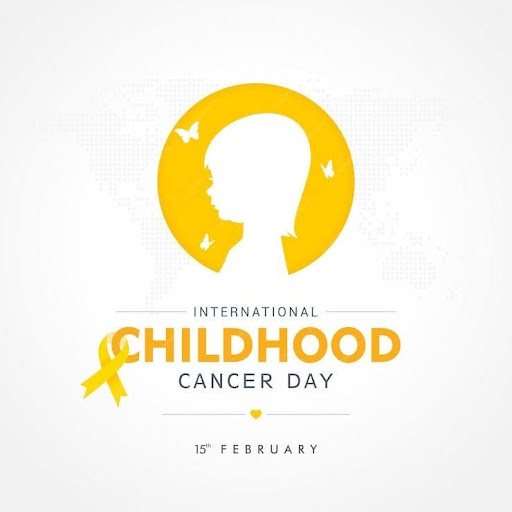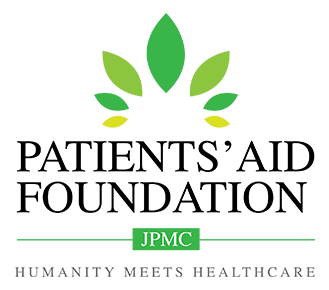International Childhood Cancer Day 2025

Cancer can affect anyone, regardless of age: child, teenager, or adult. Each year, thousands of children worldwide are diagnosed with cancer. To raise awareness and offer support to patients, survivors, their families, and caregivers, World Childhood Cancer Day is observed on February 15th. This day highlights the importance of addressing this critical issue and serves as a reminder to show solidarity, respect, and compassion for those battling cancer.
In Pakistan, an estimated 7,000 to 7,500 children are diagnosed with cancer each year, according to the NIH, 2020. While malnutrition and infectious diseases have traditionally been the leading causes of death among children, cancer is becoming an increasingly important concern as diagnostic capabilities improve. In 2017, childhood cancer accounted for 10% of all reported cancers. The most common childhood cancers are leukemia, making up 31% of cases, and lymphomas, which account for 20%, based on data from the Karachi Cancer Registry. In the Punjab region, the prevalence of lymphomas (31%) is higher than that of leukemia (23%), according to the Punjab Cancer Registry.
No one is ever ready to see their child or even loved one going through such severe diseases. That’s why advocating for early diagnosis is important. With early detection of signs and symptoms, you can save your child’s life in early stages.
What is Childhood Cancer? Types and Symptoms
Childhood cancer refers to cancer that develops in children, typically under the age of 15. It involves the abnormal growth of cells that can form tumors or affect various organs, tissues, and the blood. Unlike adult cancers, childhood cancers are often different in terms of their types, locations, and behavior.
Types
Childhood cancer can manifest through a range of symptoms, which vary depending on the type. Common types include leukemia, lymphoma, brain tumors, neuroblastoma, Wilms tumor, osteosarcoma, retinoblastoma, and rhabdomyosarcoma. Early detection and effective treatment are crucial for improving survival rates and enhancing the quality of life for affected children.
Symptoms
Symptoms may include unexplained pain, fatigue, fever, weight loss, swollen lymph nodes, bruising, or persistent headaches.
- For leukemia, symptoms often include frequent infections, pale skin, and easy bruising or bleeding. Lymphomas typically cause swelling in lymph nodes, often in the neck or armpits.
- Brain tumors can lead to headaches, vomiting, or vision changes.
- While neuroblastoma might cause a visible lump in the abdomen or chest.
- Wilms tumor often presents as a swollen abdomen.
- Osteosarcoma can cause bone pain and swelling.
- Retinoblastoma may lead to vision problems or a white appearance in the eye.
- Rhabdomyosarcoma causes swelling or a noticeable mass in soft tissues.
These symptoms often appear gradually and may be mistaken for other common childhood illnesses, so early detection is crucial.
Raising Awareness is a Critical Step in Fighting Childhood Cancer
Childhood cancer is a growing concern, and early detection can significantly improve treatment outcomes. Parents must be vigilant and proactive, watching for unusual symptoms. By noticing these early signs and seeking medical help immediately, parents can ensure that their child receives prompt care and increases the chances of effective treatment.
At Jinnah Postgraduate Medical Centre (JPMC), there is a dedicated pediatric ward, including a specialized Neonatal Intensive Care Unit (NICU), where children receive the most advanced and effective care during critical moments.
CyberKnife and Tomotherapy
JPMC utilizes advanced exclusive technologies like CyberKnife and Tomotherapy, which offer innovative and precise treatment options for cancer patients.
- CyberKnife: A non-invasive treatment option for cancer patients. Using robotic technology, CyberKnife delivers high doses of radiation with pinpoint accuracy, targeting cancerous tumors while sparing surrounding healthy tissue. It is particularly beneficial for treating tumors in delicate areas where traditional surgery may be risky or impossible.
- Tomotherapy: A revolutionary form of radiation therapy, Tomotherapy combines traditional CT imaging with radiation treatment. It allows doctors to target tumors with greater precision and accuracy, ensuring that radiation is delivered only to the cancerous cells, minimizing damage to healthy surrounding tissue. Tomotherapy is especially useful for treating pediatric cancers, as it ensures that the growth and development of healthy organs are not affected by the treatment.
Success Stories of Hope at JPMC
At Jinnah Postgraduate Medical Centre (JPMC), we have witnessed remarkable success stories, thanks to the support of Patients’ Aid in bringing advanced technologies and treatments like Tomotherapy and CyberKnife. These cutting-edge innovations have enabled our patients to receive the world-class care they deserve.
- Syed Zayan Ali, a 2-year-old, was diagnosed with a Grade IV brain tumor. After receiving successful treatment through Tomotherapy at JPMC, he is now on the road to recovery.
- Khaula Ali, a 10-year-old diagnosed with a malignant brain tumor, underwent curative radiation therapy with Tomotherapy at JPMC, and her treatment has been a success, giving her a fighting chance at a healthy future.
These success stories highlight the life-changing impact of early detection and advanced care. Your donation can help us continue to offer these life-saving treatments to children in need. Together, we can create more success stories and bring hope to families battling cancer. Donate today and make a difference.
Ensuring Access to Care for Underprivileged Families
Patients’ Aid commitment at JPMC goes beyond advanced technology; the hospital provides life-saving cancer treatments, such as CyberKnife and Tomotherapy for people coming from underprivileged backgrounds who would otherwise be unable to afford them.
Additionally, the radiology department is fully equipped with the latest devices, ensuring that all patients receive world-class care, regardless of their financial status. This is especially critical in a country where access to high-end medical treatments is often limited for many families.
Want to Make a Difference? Donate Today
The fight against childhood cancer requires collective action, and on this World Childhood Cancer Day, let’s come together to raise awareness and advocate for this noble cause. With the help of Patients’ Aid, JPMC has been able to provide high-quality, affordable medical care to patients coming to the hospital from different areas of Pakistan.
Your generous donation can directly contribute to life-saving treatments, upgrading medical equipment, and ensuring that underprivileged children have access to the care they desperately need. Together, we can make a difference in the lives of many cancer patients, giving them a fighting chance and moving closer to a world where cancer is no longer a threat.
Donate to Patients’ Aid today and join the movement to bring hope and healing to countless families. Every contribution counts, and your support will ensure that everyone has the opportunity to live a healthy, cancer-free life.

